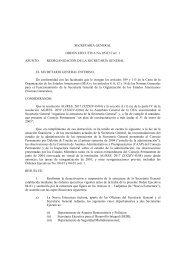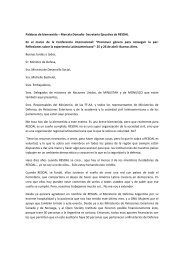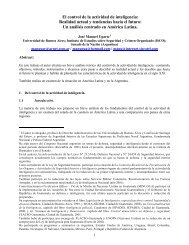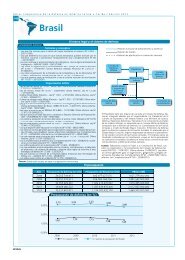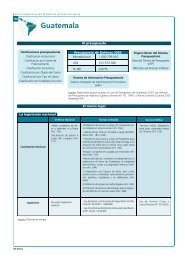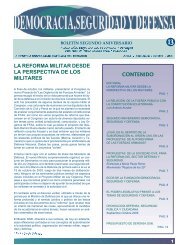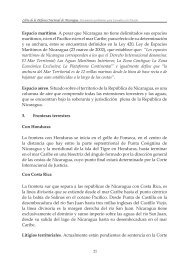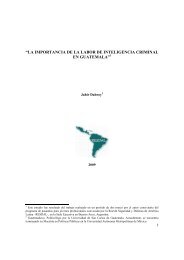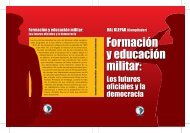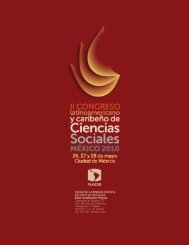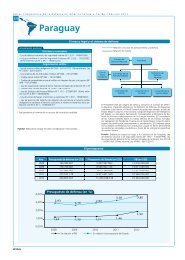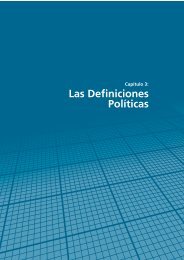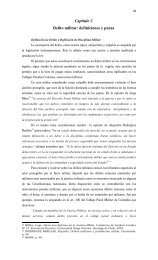Gender Mainstreaming In Peacekeeping Operations ... - Resdal
Gender Mainstreaming In Peacekeeping Operations ... - Resdal
Gender Mainstreaming In Peacekeeping Operations ... - Resdal
Create successful ePaper yourself
Turn your PDF publications into a flip-book with our unique Google optimized e-Paper software.
The OGA is part of a uniquely integrated UN mission. As co-chair<br />
of the UN <strong>Gender</strong> Theme Group (UNGTG), along with UNIFEM<br />
it works with key partners within the UN Country Team (UNDP,<br />
UNFPA, UNIFEM, UNICEF and the RC’s Office) to coordinate<br />
on gender in a strategic way, and supports the Government’s<br />
and the UN’s gender mainstreaming initiatives. The OGA is also<br />
a member of the various National Task Forces and Steering<br />
Committees, including on SGBV, that support the United Nations<br />
Development Assistance Framework (UNDAF) working groups.<br />
Liberian Women and the Historical Context<br />
The 14-year civil war in Liberia pushed further the limits on women’s<br />
equality. <strong>In</strong>stability, insecurity and the resulting economic<br />
decline hampered their independence and human rights.<br />
Violence against women during this time was normalized, along<br />
with a culture of impunity. This led to wide-scale victimization<br />
of women which further increased their vulnerability to<br />
continuing abuse and sexual violence. Additionally, women lost<br />
crucial access to infrastructure systems, economic assets, and<br />
education, altering the gender dynamic of society as a whole.<br />
As the country began to emerge from conflict, women<br />
reasserted themselves through the peace process. <strong>In</strong> 1993, the<br />
Liberian Women <strong>In</strong>itiative (LWI) brought together women from<br />
different social and regional contexts to march in protest at<br />
peace negotiations, both at home and abroad. By 2001, when<br />
the peace process restarted, the Mano River Women Peace<br />
Network (MARWOPNET) and the Women in Peacebuilding<br />
Network (WIPNET) had gained considerable constituencies.<br />
WIPNET asserted itself as the primary coordinator of a Mass<br />
Action for Peace campaign, drawing in women from all walks of<br />
life to stage sit-ins at formal peace negotiations.<br />
3




